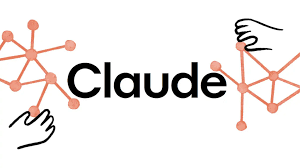In a rapidly evolving landscape where artificial intelligence (AI) is increasingly integrated into our daily lives, a groundbreaking lawsuit has emerged that could redefine the boundaries of creativity, ethics, and law. Anthropic, a leading AI research company, has been thrust into the spotlight as authors and creatives allege that their copyrighted content has been exploited by AI systems to generate new works, raising profound questions about the ownership of AI-generated content and the ethical use of machine learning models.
The Crux of the Lawsuit
At the heart of this legal battle lies a critical question: who owns the rights to content created by AI? The lawsuit against Anthropic could set a precedent that might influence the development and deployment of AI across multiple industries. The authors involved in the case argue that their original works, protected under copyright law, were used to train AI models without their consent. This has led to AI-generated outputs that closely resemble the original content, blurring the lines between human and machine creativity.

Implications for AI Ethics and Copyright Law
Implications for AI Ethics and Copyright Law
The outcome of this lawsuit could have far-reaching implications for AI ethics and copyright law. If the court sides with the authors, it could lead to stricter regulations on how AI models are trained, particularly concerning the use of copyrighted materials. This would not only impact AI developers but also industries that rely on AI-generated content, such as entertainment, marketing, and journalism.
On the other hand, a ruling in favor of Anthropic might encourage the continued use of vast datasets, including copyrighted content, for training AI systems. This could accelerate innovation but also raise concerns about the potential exploitation of creators’ rights. The case highlights the urgent need for clear guidelines that balance innovation with the protection of intellectual property.
A Broader Conversation on AI and Creativity
Beyond the legal ramifications, this lawsuit ignites a broader conversation about the role of AI in the creative process. As AI becomes more adept at generating text, music, art, and other forms of media, society must grapple with the definition of creativity and the value of human authorship. Will AI become a tool that enhances human creativity, or will it overshadow the contributions of individual creators?

A Broader Conversation on AI and Creativity
The Future of AI Regulation
Regardless of the lawsuit’s outcome, it is evident that the regulation of AI is entering a new phase. Governments and regulatory bodies worldwide are closely monitoring this case, which could influence future legislation on AI. This includes not only copyright issues but also broader concerns such as data privacy, algorithmic transparency, and the ethical use of AI technologies.
The Anthropic AI lawsuit is more than just a legal dispute; it is a pivotal moment in the ongoing dialogue about AI’s role in society. As we stand on the brink of a new era of AI-driven creativity, the decisions made in this case could shape the future of technology, law, and ethics for years to come.

